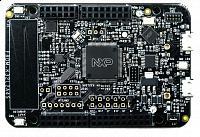FRDM-K32L2A4S

-
Core
Cortex-M0+
-
Device
K32L2A41VLL1A -
CMSIS Pack
FRDM-K32L2A4S_BSP
-
bubble_peripheral
µVision AC6The bubble level demo demonstrates basic usage of the on-board accelerometer to implement a bubble level. A bubble level utilizes two axes to visually show deviation from a level plane (0 degrees) on a given axis....See more details in readme document.
Download Pack -
bubble_peripheral
Keil Studio AC6, GCC, IARThe bubble level demo demonstrates basic usage of the on-board accelerometer to implement a bubble level. A bubble level utilizes two axes to visually show deviation from a level plane (0 degrees) on a given axis....See more details in readme document.
Download Pack -
cmp_interrupt
µVision AC6The CMP interrupt Example shows how to use interrupt with CMP driver.In this example, user should indicate an input channel to capture a voltage signal (can be controlled by user) as the CMP's positive channel input....See more details in readme document.
Download Pack -
cmp_interrupt
Keil Studio AC6, GCC, IARThe CMP interrupt Example shows how to use interrupt with CMP driver.In this example, user should indicate an input channel to capture a voltage signal (can be controlled by user) as the CMP's positive channel input....See more details in readme document.
Download Pack -
cmp_polling
Keil Studio AC6, GCC, IARThe CMP polling Example shows the simplest way to use CMP driver and help user with a quick start.In this example, user should indicate an input channel to capture a voltage signal (can be controlled by user) as the...See more details in readme document.
Download Pack -
cmp_polling
µVision AC6The CMP polling Example shows the simplest way to use CMP driver and help user with a quick start.In this example, user should indicate an input channel to capture a voltage signal (can be controlled by user) as the...See more details in readme document.
Download Pack -
cmsis_lpi2c_edma_b2b_transfer_master
Keil Studio AC6, GCC, IARCMSIS-Driver defines generic peripheral driver interfaces for middleware making it reusable across a wide range of supported microcontroller devices. The API connects microcontroller peripherals with middleware that...See more details in readme document.
Download Pack -
cmsis_lpi2c_edma_b2b_transfer_master
µVision AC6CMSIS-Driver defines generic peripheral driver interfaces for middleware making it reusable across a wide range of supported microcontroller devices. The API connects microcontroller peripherals with middleware that...See more details in readme document.
Download Pack -
cmsis_lpi2c_edma_b2b_transfer_slave
Keil Studio AC6, GCC, IARCMSIS-Driver defines generic peripheral driver interfaces for middleware making it reusable across a wide range of supported microcontroller devices. The API connects microcontroller peripherals with middleware that...See more details in readme document.
Download Pack -
cmsis_lpi2c_edma_b2b_transfer_slave
µVision AC6CMSIS-Driver defines generic peripheral driver interfaces for middleware making it reusable across a wide range of supported microcontroller devices. The API connects microcontroller peripherals with middleware that...See more details in readme document.
Download Pack
